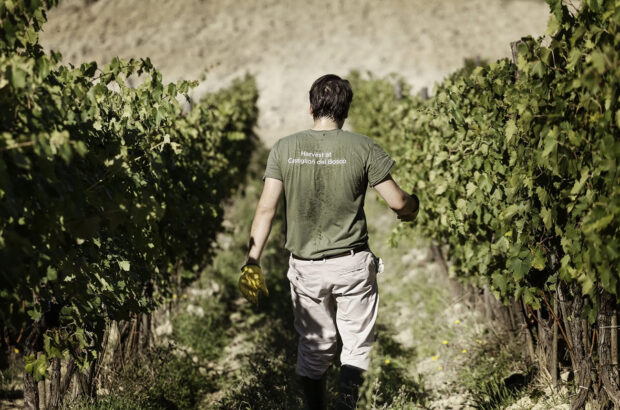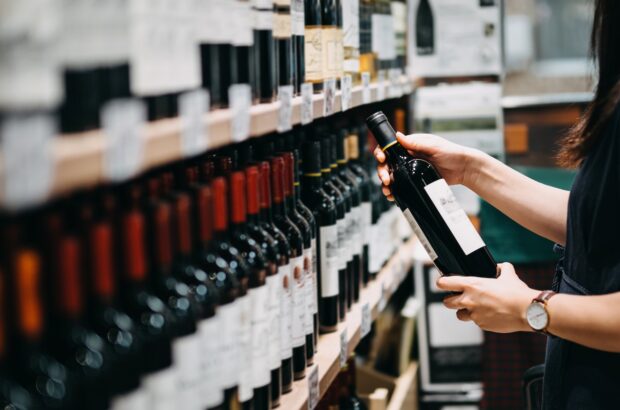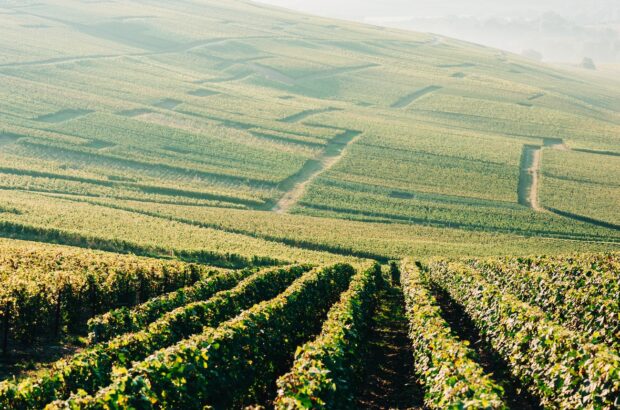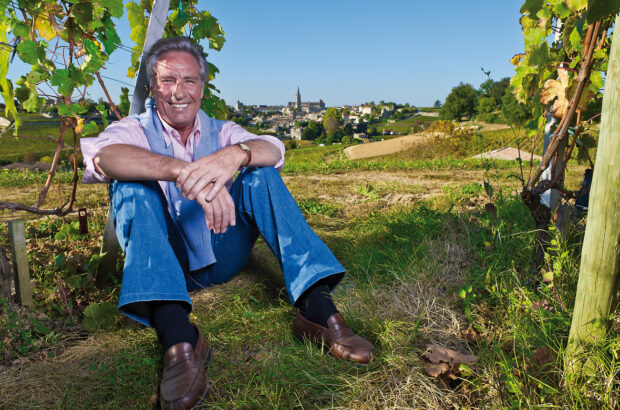Who are the future Mondavis, or Henschkes, currently toiling away in Greece's Macedonia? Susan Keevil profiles a few of the current and future stars of this exciting region
Who are the future Mondavis, or Henschkes, currently toiling away in Greece’s Macedonia? Susan Keevil profiles a few of the current and future stars of this exciting region
One thing Greek winemakers can’t be is half-hearted. It’s not in their blood. All shapes and sizes they might be, from small and wiry to rotund and beaming; they might come from every walk of professional and rural life; but none of them are slackers when it comes to advancing the cause they love best: Greek Wine. Macedonia is no exception to this rule, and there are a handful of personalities moving-and-shaking their wines to the top of the country’s chart.
MICHAELIS BOUTARIS
This man (small and wiry) is the academic. Davis-trained and Harvard-honed, and now back from America, he’s flexing his intellect at his father’s winery, Ktima Kyr-Yianni. Far from making wannabe California-style wines, Boutaris devotes his time to perfecting blends of ultimate Greekness: a flinty fresh Sauvignon is ‘only to prove Greece doesn’t just make flabby oxidised dry whites. Nor is there any New Zealand or New World tropical flavour in this wine because I always have in mind Greek food’. His grapefruity, leesy Chardonnay takes nothing from the Golden State either (‘I thought I was eating popcorn when I first tasted Californian Chardonnay’). He ensures that everything he makes tastes resolutely of home.
In his early 30s, Boutaris packs more discovery into a year than most of us do into 10. Every row in the vineyard and each vat in his winery has a different agenda – each demonstrates a different clone or cover crop, a different maceration, or yeast treatment, and Boutaris impatiently waits the year out before he can chart the results of his trials. Such is his perfectionism that if he were Australian, he’d be a young Stephen Henschke, Californian a youthful Paul Draper: chronologically he’s got 20 years yet to catch up with these giants, but vinously he’s nearer than you’d suspect, and like them, he has enough practical vigour to see his (some say) harebrained ideas through to fruition.
For those of us more into drinking wines than philosophising over them, his chosen specialist grape variety, Xinomavro, turns out to be a more than average, strawberry- (or tomato-) fruited, everyday drinker. For Boutaris and anyone really getting to know it, this variety is Macedonian gold. ‘My father makes Yianakohori, which is Xinomavro tempered with Merlot to mitigate its aggressive acidity, and this gets the consumer hooked. But the connoisseurs go for pure Xinomavro.’ Boutaris believes in this grape because it’s become typical of his region (Naoussa), it goes naturally with the local food (aubergines, spicy goat stew, sheep’s cheese, tomato salad), and he feels strongly that Greeks should represent their culture with their native varieties.
DIMITRIOS KATSAROS
Dr Dimitrios Katsaros is the Macedonian medic. (In the greatest possible affirmation that wine is indeed good for you, winery-owning doctors can be found around the world.) Katsaros is an ENT consultant by week and a Cab-Merlot-Chard specialist at the weekends – taking advantage of his precipitously high site to indulge in astronomy by night. Modest, bespectacled (another intellectual) and determined, Katsaros defends his choice of ‘international’ varieties as the best and only options on Mount Olympos: ‘These grapes grow well to mid-September, whereas local varieties ripen later by a month, which is when we run into rain and cold.’ Everything here is organic, the summers are cooler, and the water ‘comes from God’ not irrigation pipes.
Katsaros’ tiny vineyards (a mere 8.5ha) show as scattered patches of emerald among the moutain scrub but, as he explains, until World War II the whole mountain was terraced to vines, and these represent sites that historically yielded the best. ‘Take my Cabernet, it’s unique. Not like a Bordeaux or a California wine, but it has special characteristics that evolve from mint to strawberry over the years. That’s why even the French buy it.’
YANNIS VOYATZIS
Another giant of intellect (if not physical frame) is Yannis Voyatzis – the rebel – whose chosen geographical feature is a lake rather than a mountain. Softly spoken and gently mannered, he swapped a full-time job as chief oenologist for the giant Boutari
winery, for a part-time role, so he could build his own estate four-hours drive from civilisation. Voyatzis’ double life is now spent indulging in his dream of perfecting Greek Xinomavro, and at Boutaris – and in his car between the two.
Voyatzis is on a mission to preserve the best viticultural stock – Xinomavro, for example, is like Pinot Noir, in its number of clones. He also grows Moscomavro, Xaoosi, Batiki, Roditis and many more.
Although barely two years into this new project, Voyatzis is making great strides. Perhaps it’s the moderating influence of ‘Lake’ Polyfyto that helps – a reservoir that moderates baking inland temperatures. ‘You’re not going to find straight Merlot in this wine!’ He fixes me with round, brown eyes: ‘Xinomavro, yes, local grape varieties, yes, but we only use international grapes to vary the texture.’
VASSILIS TSATSARIS
Here, a gentle giant. With acclaimed
oenologist Vangelis Gerovassiliou, Tsatsaris is building a striking, no-expense spared winery, ‘Oinopedion’, looking out to sea at Kavala. But with Gerovassiliou mainly consulting from afar, Tsatsaris is the guy on the ground who makes the wine. And signs are that these are some of the most skilful blends of Greek and non-Greek grapes available. The familiarity of, say, Sauvignon, is spiced up with the zest of Assyrtiko showing perfectly the best of each. ‘We chose this place because the soils are so poor and stony, so we can have low production with top quality,’ says Tsatsaris.
GEORGE SALPIGEIDIS
This agronomist has history and geography on his side, based as he is out at Thrace. This is where, according to history, Odysseus was given a wine so strong that it had to be diluted 20 to one.
Salpigeidis isn’t so much striking out on his own as reclaiming old lands, where grapes took precedence before Ottoman rule and successful arable crops took over. Winemaking at the Maronia Winery (owned by Tsantali), is unhoned as yet, but this man-of-the-land (Camels and mobile in pocket, London PhD under belt) is growing some of the finest fruit in northern Greece. Once again, watch this space.
STERGIOS AND PERICLES TATSOS
These pony-tailed brothers are maverick, botanist perfectionists working hard on raising Macedonia’s game. In the first Macedonian foray into seriously holistic winemaking, Stergios and Pericles are stepping into the biodynamic world of Rudolf Steiner. ‘We believe we can increase quality by 40% with biodynamics. This is a fantastic area – the sea wind ensures there’s very little rot, and the vines are very healthy and vibrant,’ says Stergios, the agronomist.
Based on their wines to date, stunning rich red Goumenissa (from Xinomavro and Negoska), white Roditis and 100% Negoska rosé, the brothers have possibly the brightest future of any of their peers. Certainly, they’re making wines of which their grape-growing relatives (refugees from Eastern Thrace, now Bulgaria) would be justly proud.
Written by SUSAN KEEVIL






